Morro Bay has new homeless camping rules. Do they help or say ‘get the hell out of here’?
Since the Morro Bay City Council passed new restrictions on where people can camp on public property, Erik Michael Sorensen spends more time hiking in and out of the city to his new campsite — and less time accessing support services.
“I don’t think it’s actually feasible for me to comply with it,” Sorensen told The Tribune. “I think the ordinance is actually just a lot of trim around the phrase, ‘Get the hell out of here.’”
Sorensen, 37, said he’s lived in Morro Bay on and off during the past 20 years and has been homeless since January 2023, when he was evicted from his previous residence.
He’s one of about 100 unhoused people who live in Morro Bay and are now contending with the city’s new camping and parking ordinances introduced in December, which require homeless individuals to move their camp every 24 hours and prohibit camping in many parts of the city.
During the past two months, Sorensen said these policies have made it harder for him and other unhoused people to establish the routines needed to break out of homelessness or even meet their basic needs.
Morro Bay police Chief Amy Watkins said while she could see how the ordinances could make life more difficult day-to-day, the city worked with the Community Action Partnership of San Luis Obispo and Transitions-Mental Health Association to make sure their encampment removal techniques are compassionate.
“We asked them, ‘Is this cruel? Is this inhumane? Is this something that isn’t right?’ And they go, ‘No, absolutely not. You have to continue to encourage them to move,’” Watkins said. “Movement is momentum.”
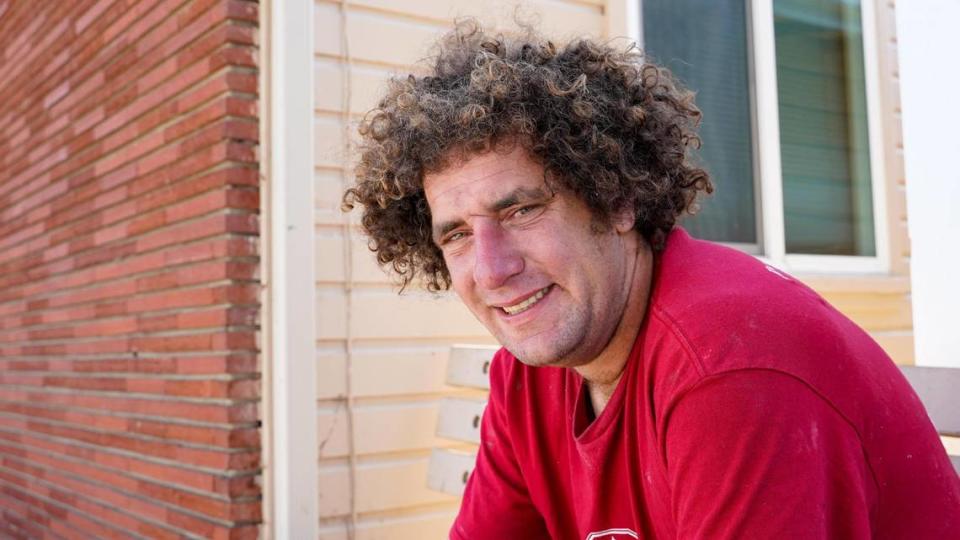
Where can homeless Morro Bay residents sleep?
The camping ordinance regulates how and where people experiencing homelessness can stay overnight on public property, Watkins said.
In addition to the 24-hour limit, camping is prohibited near schools, playgrounds, areas that impede access to public or private property and more.
Also, camps are limited to two people, two animals and one portable tent. Campers must remove all garbage and waste when they leave, and they cannot use an open flame or dump hazardous waste.
The intent of the ordinance is to encourage small, mobile campsites while discouraging large, permanent encampments and preventing the health and safety challenges that come with them, Watkins said.
“They can lay their head down at night. They rest, they pack up and and they move on,” Watkins said.
After an officer informs the camper that they are violating the city’s regulations, the camper has 72 hours to leave the site.
“We seek voluntary compliance through education,” Watkins said. “We’re not here to criminalize anything through this camping ordinance.”
Police don’t provide an alternative place for unhoused people to camp, but they do direct them to support services, while holding items “of reasonable value and utility” for 90 days.
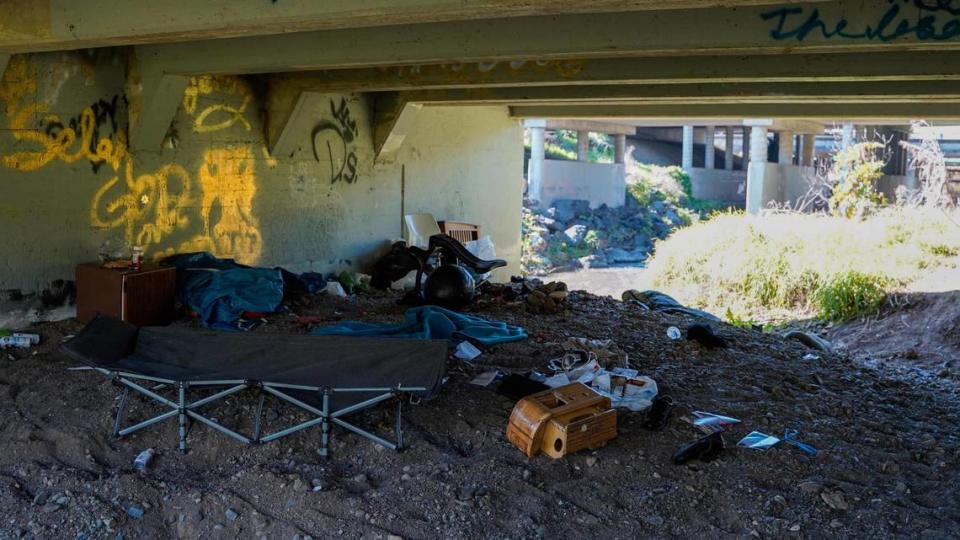
Over the past 30 days, the city only posted five notices on public property alerting campers to move on. The first was a notice at one encampment on city property behind FitnessWorks on Quintana Road on Feb. 8.
The Public Works Department returned to clean up the area on Feb. 13. All encampment occupants had left, so no one was cited or arrested Watkins said.
The second was a posting underneath a bridge off of Main Street near Highway 1 on Feb. 13 — leading to a clash between police officers and the resident of the encampment.
When police arrived at the underpass, the resident was walking nearby with his bike. Officers attempted to talk with him, but he ignored them and kept walking. When the officers pursued him, the man turned around and swung his arm to strike one of the officers, according to Watkins.
Three officers then wrestled the man to the ground to handcuff and arrest him, The Tribune observed.
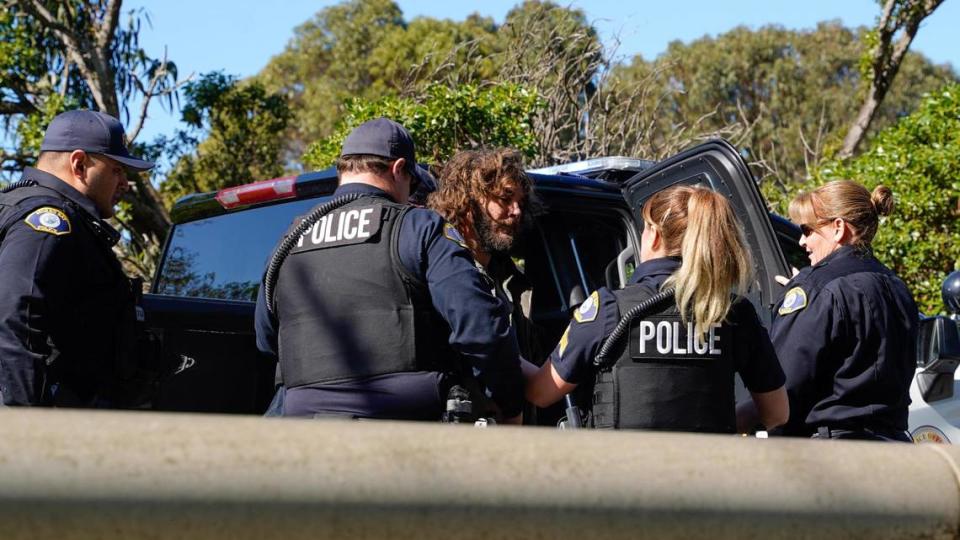
Police posted the 72-hour notice in the camp, which included a portable cot, a variety of chairs and a small refrigerator acting as a shelf.
Since Feb. 13, police posted notices at three other camps under the Highway 1 bridge, according to Watkins.
The city also removed a large encampment on undeveloped, private property on Quintana Road on Jan. 5. Camps on private property are removed with permission of the property owner through a different process because it is considered trespassing. The city issued about 30 trespass notices at the Quintana Road camp, Watkins said.
Since the ordinances went into effect in December, the police have issued six citations for trespassing on private property, over the course of five encampment cleanups, she said in an email.
Sorensen was one of the residents who’d been living at the Quintana Road encampment, but he left before the camping ordinance went into effect to avoid losing his possessions and receiving a citation.
Sorensen said the requirement to move every 24 hours is physically demanding, particularly in the event of an injury or illness, which are more common while living unsheltered on the street. He doesn’t expect to find housing or a job, especially while moving his camp every night.
“I’ve given up on trying to ascend from a lot of things in this town,” Sorensen said. “I’m never gonna own that house — not gonna happen. My chances of moving into a room in this town are very slim — I can’t find employment, so for me, it’s like just leave me alone.”
The requirement has also scattered his friends into the corners of the city, breaking up the sense of community felt by some of the city’s long-term homeless residents, he said.
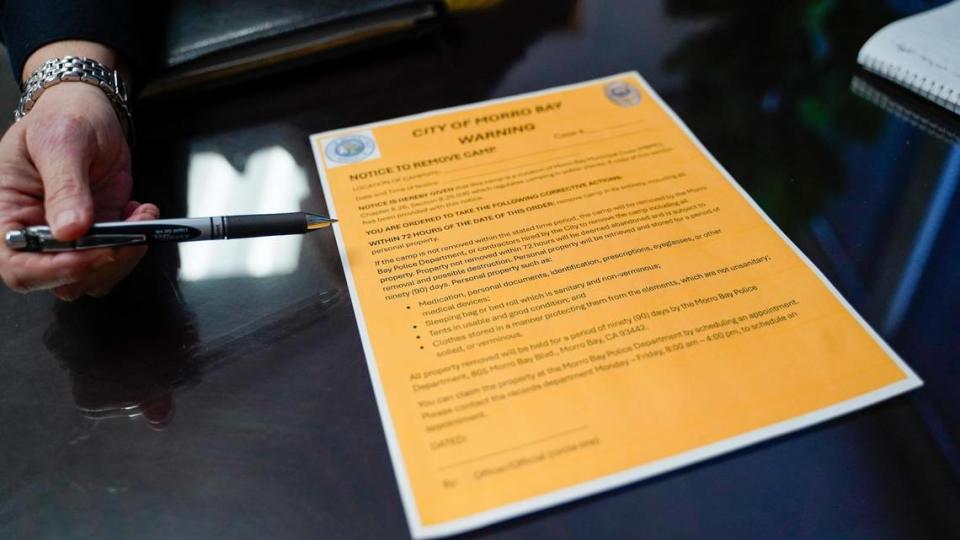
Police: Movement keeps homeless headed toward housing, services
Homeless services case manager Jason Holland works with the cities of Morro Bay and Atascadero to provide resources to people experiencing homelessness.
He drives people to court appearances, shelters and probation appointments. He also hands out bus passes and connects people with the Social Services Department, which in turn connects them with services like CalFresh and Medi-Cal.
Holland acknowledged the services he can connect people to are limited, especially in a city with no shelter of its own.
Though people may have a harder time accessing services if they’re constantly moving, they also might reconsider their situation and “accept the help when they’re offered it,” Holland said.
“We don’t want to take people to jail. We don’t want to cite people,” Holland said.
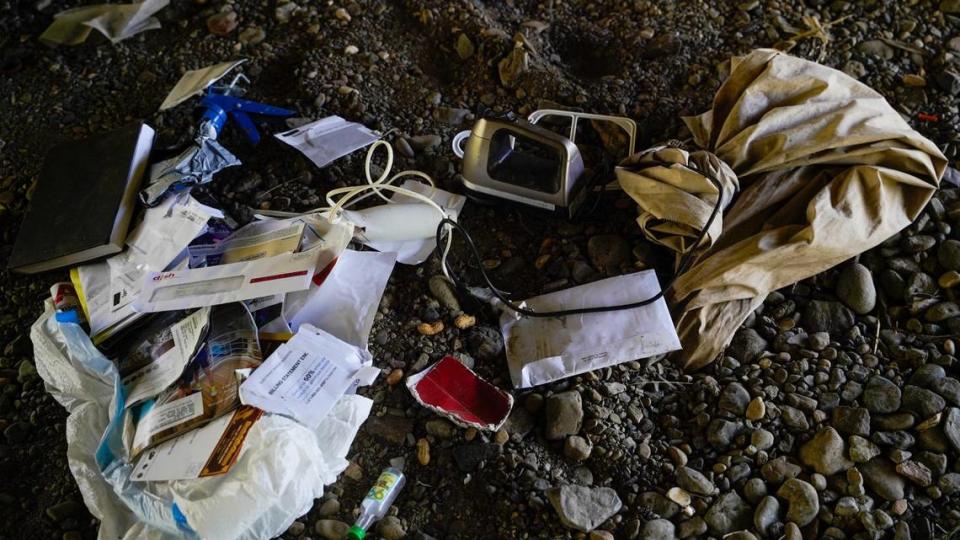
Since Atascadero passed a similar camping ordinance in September, Holland said his team has accomplished “significantly better outcomes” getting people into shelters and rehab.
His team transported five people to ECHO from the streets of Atascadero this year. Last year, they had no such success by February.
Meanwhile, the city increased services alongside the ordinance.
On Feb. 5, the nonprofit 805 Street Outreach launched a new program that offers free showers and hygienic care to homeless individuals in Morro Bay on the first and third Mondays of the month.
Additionally, CAPSLO community services program director Lawren Ramos said the nonprofit has increased staff time in the region in recent months.
“We find that those we connect with are receptive to services when we connect with compassion and understanding,” Ramos said in the statement. “We have not observed any significant increase in requests for services.”
Still, Watkins noted that some people will continue to shy away from resources. Of the 100 people in Morro Bay, she said, about 30% are service-averse.
The city is also looking to educate and better inform the public on the ordinance and its enforcement policies, announcing a forum Monday, Feb. 26 at the Morro Bay Community Center Auditorium at 3 p.m.
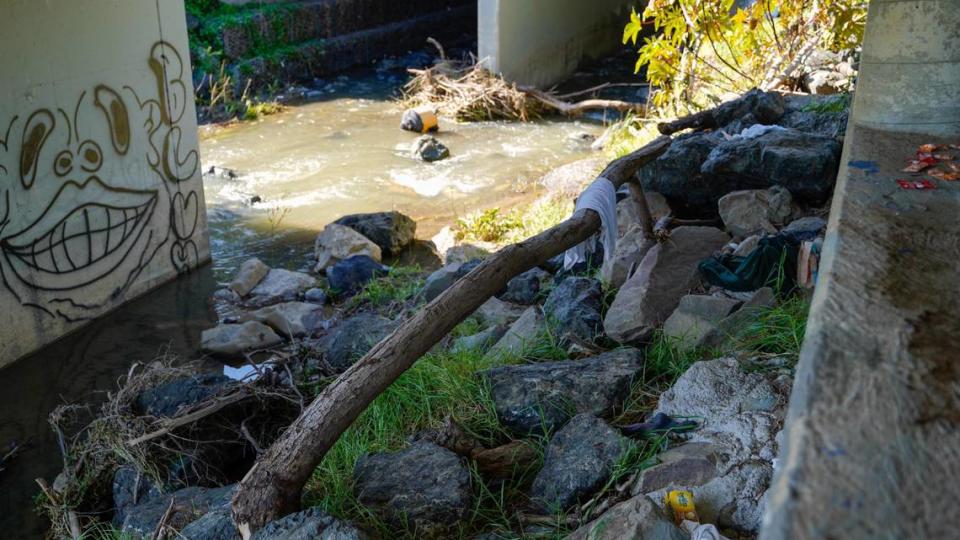
What do people experiencing homelessness think about the ordinance?
While city officials and service providers say breaking up encampments and keeping homeless residents mobile prevents them from becoming trapped in cycles of stagnation in unsafe conditions, homeless Morro Bay residents living with the new ordinances offered a different view of living conditions.
Frederick, a 5-year homeless resident of Morro Bay and friend of Sorensen who declined to give his last name due to privacy concerns, said it’s been far more difficult to maintain his job as a handyman due to the camping ordinance’s movement requirements and limited space to sleep.
Frederick said so far this year, it’s been hard to “live a life that resembles normal” without a place to reliably return to at night, as moving his camp every day means setting up and tearing down shelter items such as tents and cookware.
As a result, said he hasn’t had any contact with service providers since the ordinances went into effect, and struggles to keep his phone dry and charged to stay in contact with his work and stay on time for appointments.
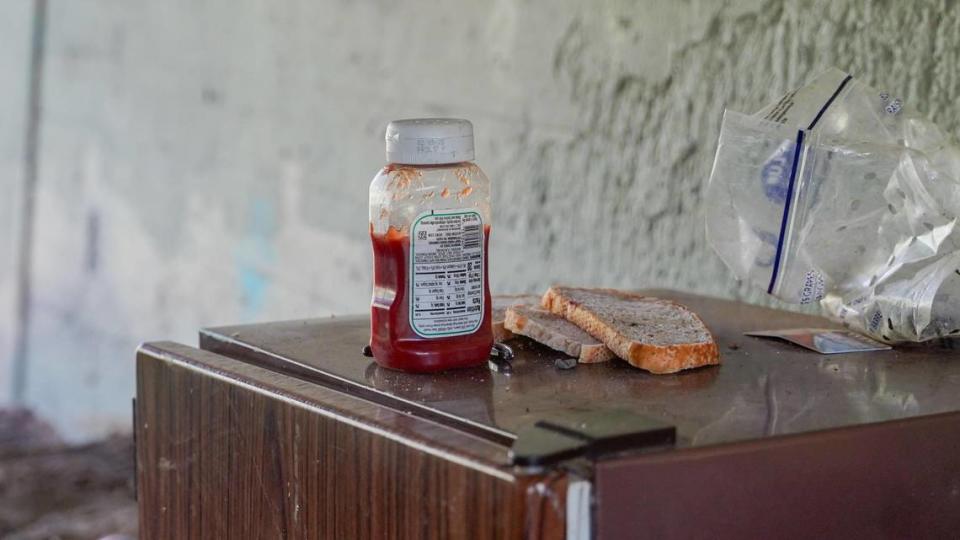
In a city where he said it’s nearly impossible to rent a room or place to live on a full-time, minimum wage job or as a part-time worker, he said he’s unsure how he’ll be able to climb out of unsheltered homelessness.
“I’ve always been houseless but not homeless, but now it’s like I don’t even have that,” Frederick told The Tribune. “It goes from having a tent and cooker — you know, hot food and a cot or something that — to literally living in a sleeping bag.”
Grant Young, another homeless resident currently living in a recreational vehicle he purchased for $500 in October, said the new ordinances have limited where he can live in the city.
The Morro Bay City Council also passed an ordinance regulating where vehicles can camp overnight on private property. It requires property owners to provide access to sanitary facilities at all time to people camping in vehicles on their property, and says that campers can only stay at the property three times a week within a 10-day period.
Young said in the past, he made a little money playing music outside of the Albertsons grocery store and stayed in grocery store lots.
Though his vehicle has a host of problems that make it difficult to move consistently, he said it’s a better place for him and his dog, Duke, than staying in the creek, where he was bitten by a brown recluse spider last year.
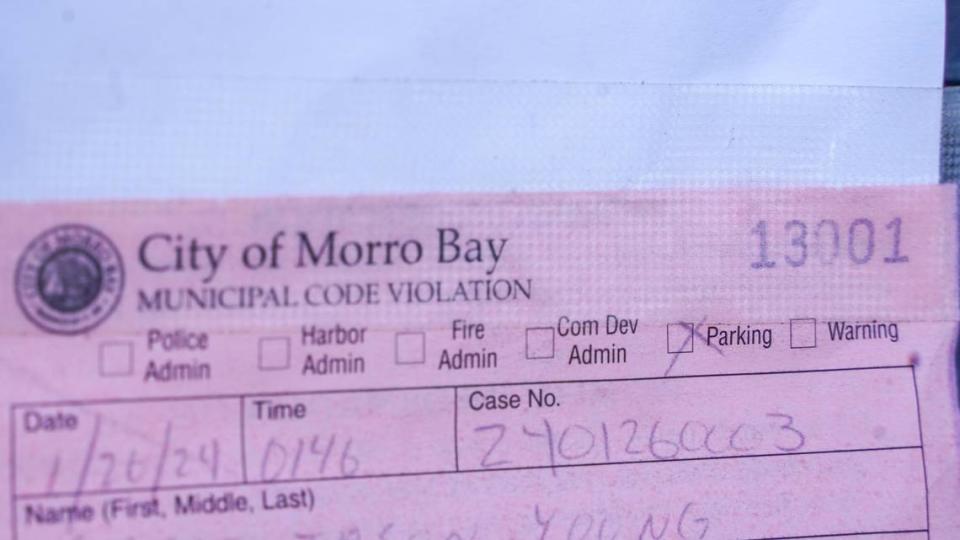
Now, the city’s parking ordinance has made it harder to stay near services he relies on, and has decentralized the community he formed while living in riverbeds and encampments.
“There was more community in just that strip of creek than there is the whole town of Morro Bay,” Young told The Tribune.
Facing isolation on the outskirts of the city and holding little hope of improvement, Sorensen said it was unreasonable for the city to ask its homeless residents to tuck their lives into the city’s corners each day.
“You gotta give us something,” Sorensen said. “That’s my thing: We can’t just say ‘Not here,’ but then not have anywhere else to go.“

